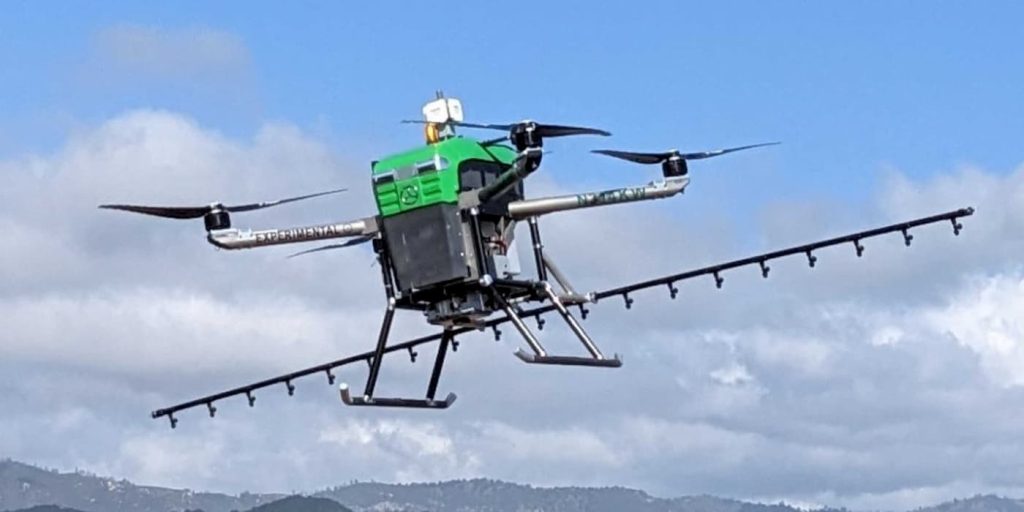
After receiving approval from the US Federal Aviation Administration (FAA) Monday, Guardian Agriculture has become the first commercially authorized eVTOL to operate across the US. Guardian’s electric autonomous drones will be used to spray crops, paving the way for sustainable farming in the US.
Founded in 2017, Guardian Agriculture believed advances in electric vehicles, AI, and flight dynamics could serve a more significant purpose.
Led by a group of former Apple, BAE, Tesla, and Uber executives, the company found its first opportunity in guarding farm fields with less waste and harmful emissions, hence the name Guardian Agriculture.
Guardian had its second prototype running through field trials to test reliability, spray patterns, and precision on a number of different crops in different locations by 2019. And by the end of 2020, the team had received its first SAC-EC (special airworthiness certificate) through the FAA.
Monday, the company achieved another major milestone in receiving approval from the FAA to operate nationwide, making it the first commercially authorized eVTOL in the US.

Electric drone sets the stage for sustainable farming
Although drones for farming are not a new idea, Guardian is the first in the US to gain FAA approval to operate a commercial electric vertical takeoff and landing (eVTOL) system.
The authorization paves the way for sustainable farming with an autonomous electric drone for crop dusting and spraying.
Many commercial farmers are already moving away from gas-powered aircraft to protect their crops. However, until now, many systems were too small and couldn’t provide full coverage.
Guardian says it is now the only US company with a viable solution. Its eVTOL delivers the same coverage as traditional aerial crop dusting and ground spraying equipment with digital accuracy at the same or lower costs.
Guardian Agriculture CEO and past BattleBots champion, Adam Bercu, says they designed the electric drone to meet the needs of commercial agriculture, explaining:
eVTOL powered crop protection is better for crops, better for the environment, and better for growers’ bottom line.
With a 9.1 kWh battery capacity, and four six-foot propellers powered by a 40hp drivetrain, the Guardian SC1 eVTOL can efficiently cover 40 acres per hour of full-field crop protection for growers.
Furthermore, with fully autonomous capabilities, a supercharger ground station, and software to store data, the electric drone is designed to hit its target, wherever that may be, precisely.
Guardian expects to be the first eVTOL manufacturer operating at scale after the authorization, as GuardianCOO Jeff Sparks explains:
This is just the start. The real-world experience we’ll accumulate allows us to demonstrate our system’s safety and reliability, which we can leverage across other use cases and products outside of agriculture.
The company says it already has over $100 million in customer orders for its electric drone. Systems start at $119,000, with deliveries beginning later this year.
Guardian plans to begin operations in the next few months for its customers just north of San Jose, California.
Electrek’s Take
Although crop dusters may only account for a fraction of total aircraft emissions, traditional gas-powered models can still emit emissions while traveling over crops.
In addition, small gas-powered aircraft are also the largest emitter of lead in the US, as other major emission sources, such as vehicles, have already addressed the issue.
These types of aircraft are the perfect candidate to go electric, and Guardian Agriculture is leading the way toward sustainability in farming with its autonomous electric drone.
Author: Peter Johnson
Source: Electrek



